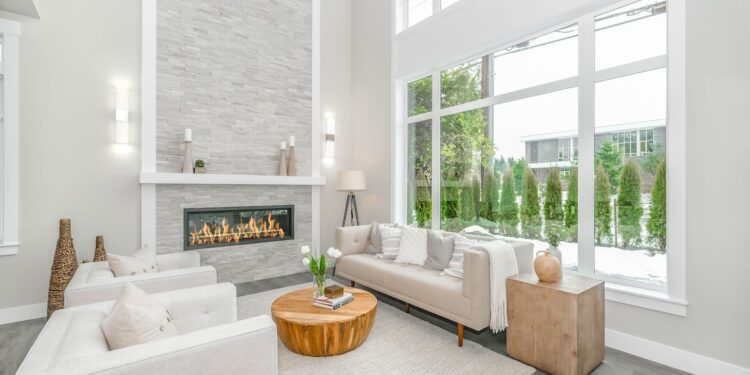Are you considering buying a fixer-upper? While this can be a great investment opportunity, it’s important to weigh the pros and cons before making a decision. Fixer-uppers can be a great option for those willing to put in the work, but they also come with risks and challenges. In this post, we’ll explore the pros and cons of buying a fixer-upper to help you make an informed decision.
Pros of Buying a Fixer-Upper:
1. Lower Purchase Price
One of the main advantages of buying a fixer-upper is the lower purchase price compared to turnkey homes. Fixer-uppers are usually priced below market value, making them an attractive option for those on a tight budget. The lower purchase price can also mean lower mortgage payments, allowing you to save more money over time.
2. Customization Opportunities
When you buy a fixer-upper, you have the freedom to customize the home to your liking. This means you can make design choices that fit your style and preferences. You can also make changes that add value to the home. For example, updating the kitchen or bathroom can significantly increase the resale value of the home.
3. Greater ROI Potential
If you’re willing to put in the work, a fixer-upper can have a high ROI potential. This is especially true if you plan on flipping the home or renting it out. Fixing up a home can increase its value, making it easier to sell or rent for a higher price. While this isn’t a guarantee, it’s definitely a possibility if you’re willing to put in the effort.
4. Opportunity to Learn New Skills
Buying a fixer-upper can also be a great opportunity to learn new skills. From painting and flooring to plumbing and electrical work, you’ll have plenty of chances to improve your DIY skills. Not only will you save money by doing things yourself, but you’ll also have the satisfaction of knowing you completed the work on your own.
Cons of Buying a Fixer-Upper:
1. Unexpected Costs
One of the biggest risks of buying a fixer-upper is the potential for unexpected costs. When you buy a home, it’s common for unexpected expenses to come up, but with a fixer-upper, these expenses can be much higher. You could discover issues that require extensive repairs, such as foundation or structural damage. It’s important to have a contingency fund in place to cover unexpected expenses.
2. Higher Renovation Costs
While buying a fixer-upper can be a great way to save money, the cost of renovations can add up quickly. Depending on the extent of the work needed, renovations can be expensive and time-consuming. It’s important to have a detailed budget in place before buying a fixer-upper to avoid overspending and getting into debt.
3. Time-Consuming
Renovating a fixer-upper can be a time-consuming process. Depending on the extent of the work needed, renovations can take months or even years to complete. This can be a challenge if you’re looking to move in quickly or if you’re on a tight timeline. It’s important to have realistic expectations about the timeline of renovations and be prepared for delays or setbacks.
4. Emotional Toll
Renovating a fixer-upper can also take an emotional toll. It’s common to experience frustration, stress, and even overwhelming emotions during the renovation process. This is especially true if unexpected issues arise or if renovations take longer than expected. It’s important to have a support system in place and to take time for self-care during the renovation process.
Tips for Buying a Fixer-Upper:
If you’re considering buying a fixer-upper, there are a few tips to keep in mind to make the process smoother and less stressful:
1. Get a thorough inspection.
Before buying a fixer-upper, make sure to hire a professional inspector to assess the condition of the home. This will give you a better understanding of the repairs and renovations needed and allow you to adjust your budget accordingly.
2. Have a detailed budget.
When buying a fixer-upper, it’s important to have a detailed budget in place. This should include an estimate of all the repairs and renovations needed, as well as a contingency fund for unexpected expenses.
3. Prioritize repairs.
When renovating a fixer-upper, it’s important to prioritize repairs based on safety and functionality. This means focusing on issues that could pose a safety risk or prevent you from living in the home comfortably.
4. Get multiple quotes.
When hiring contractors for renovations, it’s important to get multiple quotes to ensure you’re getting a fair price. Don’t be afraid to negotiate and compare quotes to find the best deal.
Conclusion:
Buying a fixer-upper can be a great investment opportunity, but it’s important to weigh the pros and cons before making a decision. While lower purchase prices and customization opportunities are definite advantages, there are also risks and challenges involved, such as unexpected costs and time-consuming renovations. By keeping these factors in mind and following the tips outlined in this post, you can make an informed decision about whether a fixer-upper is right for you.
Emergency plumber: Our 24/7 emergency plumbers are here to assist you anytime, day or night. Count on us for reliable solutions to tackle any plumbing issue.















